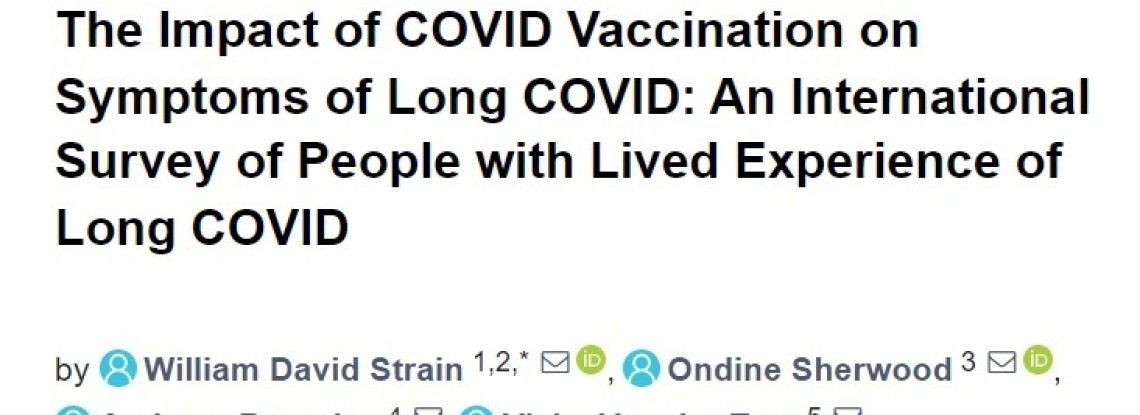Research-Aid Networks, in collaboration with the advocacy group LongCovidSOS, the University of Exeter and the University of Kent launched a survey to find out how people with Long COVID respond to COVID-19 vaccines.
Since the rollout of the vaccines, anecdotal evidence has grown that some people with Long Covid may benefit from vaccination, and stories of recovery after months of symptoms began to appear in the press. Conversely, there has been concern among people with Long Covid that vaccination may precipitate relapses or worsening of symptoms. A paper, not yet peer-reviewed, concluded that the Astra Zeneca vaccine studied led to a small overall improvement in a group of 44 patients who had been hospitalised with Covid-19. There have been polls and surveys among patient groups which seem to suggest that while the results are mixed, some people do indeed report improvement after their jabs and a small proportion seem to completely recover.
At present, there is no treatment for Long Covid. Although research has been commissioned into the condition huge numbers of people of all ages experience symptoms, which may relapse and remit, for many months after their initial infection. The Office for National Statistics estimates that after four months 12% of those testing positive for COVID-19 remain symptomatic. The ONS also estimated in early March 2021 that 1.1m people in the UK were experiencing Long Covid symptoms and up to 70,000 people had not yet fully recovered a year after being infected. We are now well past the anniversary of the height of the first wave of the pandemic in the UK, and today this cohort would certainly be far more numerous.
There have been calls for more research into the potential for vaccines to help alleviate the debilitating effects of Long Covid. In this survey we looked at the impact of the different vaccines across 14 common Long Covid symptoms to see which are most likely to be influenced by vaccination and to look for any patterns which might determine why some people improve and others do not. The survey was posted online on the LongCovidSOS website, twitter and Instagram accounts, the Body Politic Covid-19 Support Group and on several Long Covid Facebook groups both in the UK and abroad. It was also sent to people registered on the LongCovidSOS mailing list. People with Long Covid, ME/CFS or both were invited to take part. We did not restrict the survey to only those who had a positive PCR/antibody test since so many people who caught Covid-19 during the height of the first wave of the pandemic in early 2020 would not have had the chance to be tested. We gathered data on which vaccine was received and when, date and severity of initial disease, any chronic conditions, and general demographics. As well as asking respondents to provide an assessment of the overall change in their disease, they were invited to rate each symptom on a scale of 1-10 before the first and after each dose of the vaccine. We included a note to remind people that it is common to suffer an initial reaction to vaccines, and that we were looking for more sustained impact on their symptoms.


